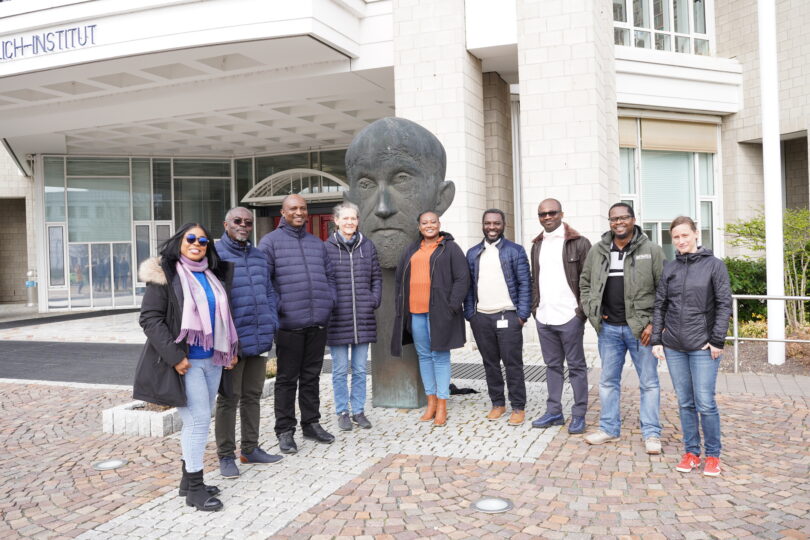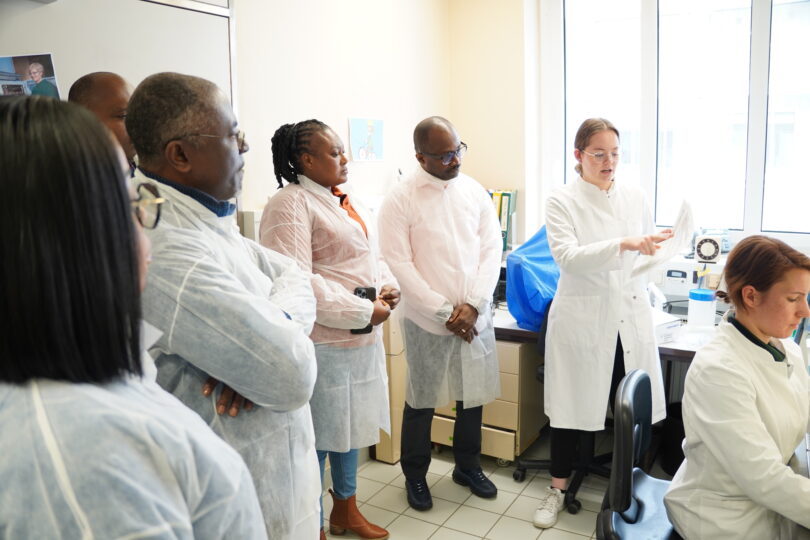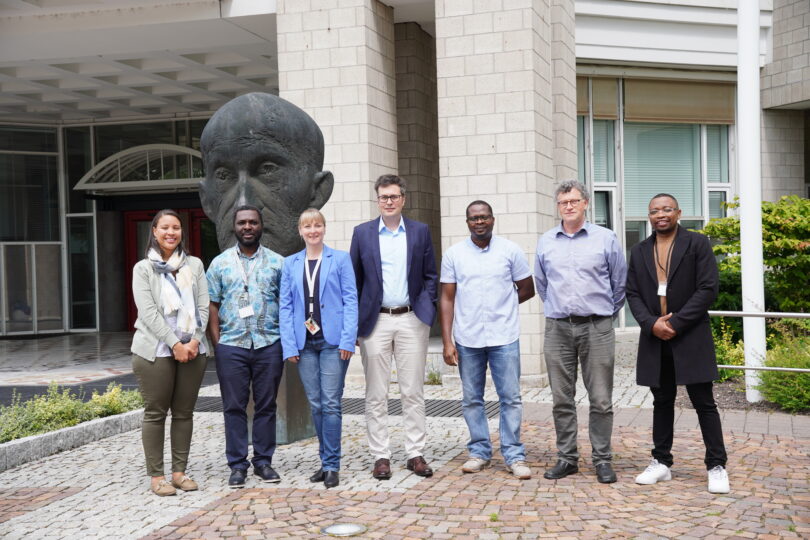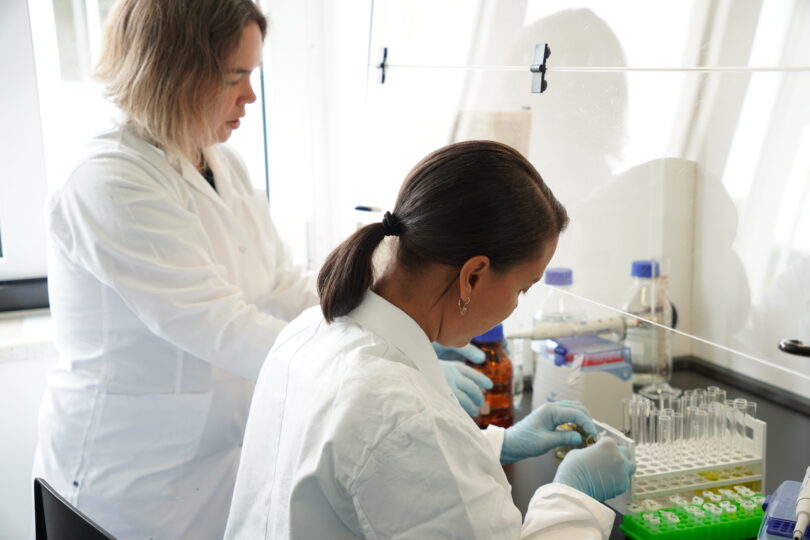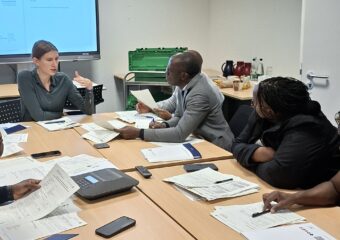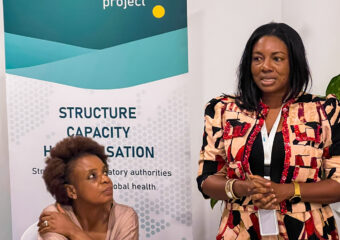Proof of Potency: Practical Exercises on the Quality Control Testing Required for Official lot Release
The VaccRelease project organised and facilitated two further training courses at the Paul-Ehrlich-Institut in the first half of 2024. The aim was to build and exchange experience on official lot release of vaccines and biological products against infectious diseases or snake venom in its partner countries Ghana and South Africa.

Ghana aims to establish official lot release for vaccines and biological products
Five Regulatory Officers from the Food and Drugs Authority of Ghana (FDA Ghana) took part in a two-week training at the Paul-Ehrlich-Institut (PEI) in February 2024. The participating team covered a range of expert areas: There was one laboratory manager and one analyst who conducted new experimental potency tests. Furthermore, two assessors from the marketing authorization department reviewed the manufacturers’ documents submitted for official lot release. Finally, there was attending the quality management officer who studied the quality management system of PEI. For the Ghanaian colleagues, the main objective was to familiarise themselves with the lot release process for vaccine and antisera to facilitate the establishment of it in their agency.
During the training, participants went through all the steps required for lot release of vaccines and antisera in five specialist departments at PEI. The assessors were given the opportunity to learn the key considerations with illustrative examples in the review of lot summary protocols for different vaccine platforms. Meanwhile, the Laboratory team performed hands-on potency assays for vaccine with the guidance of the laboratory technician at PEI. For example, they explored the Enzyme-linked Immunosorbent Assay (ELISA) test used to investigate the potency of many vaccines. The quality manager had the opportunity to review and learn about some of the policies, structures, procedures, and records maintained within the Quality Management System at PEI.
In addition to vaccines, official lot testing is also required for antivenoms and antisera against infectious diseases such as rabies and diphtheria. These are urgently needed in Africa, with proven efficacy and quality, and are considered critical biological medicines. Official lot release of antisera follows the same principles as for vaccines. As there are currently no locally produced vaccines in Ghana, the FDA Ghana is currently setting up lot release for locally produced antivenoms and infectious disease antisera.
The Head of Department Drug Laboratory at the FDA Ghana, Mr. Patrick Owusu-Danso, remarked during the closing session that the training was hands-on and valuable for the work in Ghana and it will be helpful in preparation towards establishing the vaccine lot release process in Ghana. Dr Heidi Meyer, Project Lead of the VaccRelease project at the Paul-Ehrlich-Institut, adds, ‘The training gave our partners a first overview and we are pleased to be able to further support the establishment of the process at the FDA Ghana through continuous mentoring.’
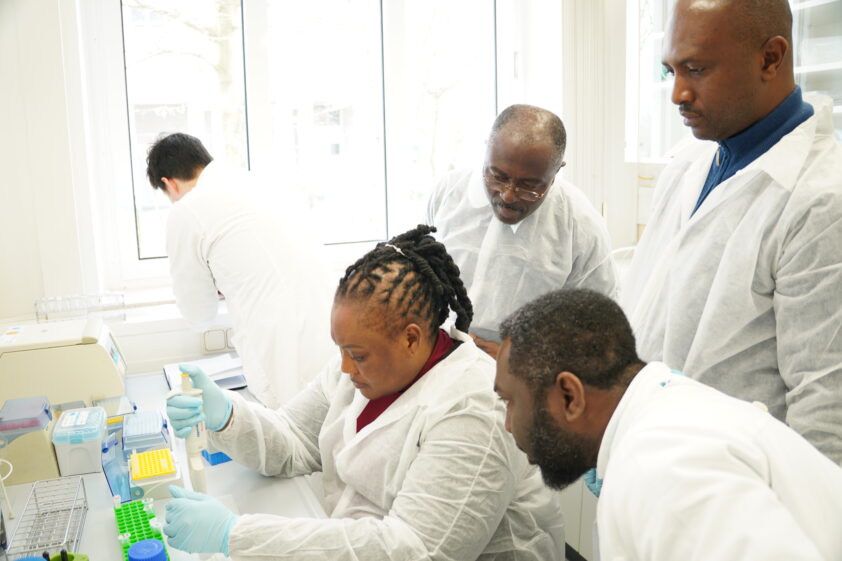
South African Control Laboratory: Practical guidance on newly introduced vaccines
The South African National Control Laboratory for Biological Products (SANCLBP) is a control laboratory certified by the World Health Organization. It has many years of experience in lot testing of vaccines. To further qualify laboratory staff for bacterial and viral vaccines against meningococcal disease and human papillomavirus (HPV), a training plan was agreed with the SANCLBP management. Two colleagues from South Africa were given the opportunity to learn and perform specific experimental testing procedures at the PEI. In addition, critical aspects of reviewing manufacturers’ documentation and the use of various statistical analysis methods were presented and discussed. ‘The expertise that the PEI colleagues shared with us will help and guide us significantly when we introduce the testing procedures in South Africa. We also gained a lot of knowledge about statistical analysis methods and their possible applications in the monitoring of manufacturers’ data,’ said Aurelia Genevieve Jansen, SANCLBP, in her final presentation.
Tailored training courses
The content of the VaccRelease training courses is tailored to the needs of the partner country. They follow the country-specific training plan to strengthen the local regulatory review process for lot release of vaccines and biological products. The project is fully supported during the training courses by experts from the various specialist departments of the PEI. The review of lots and manufacturers’ documentation is part of the regulatory control of quality, efficacy, and safety before they can be released and placed on the market.

